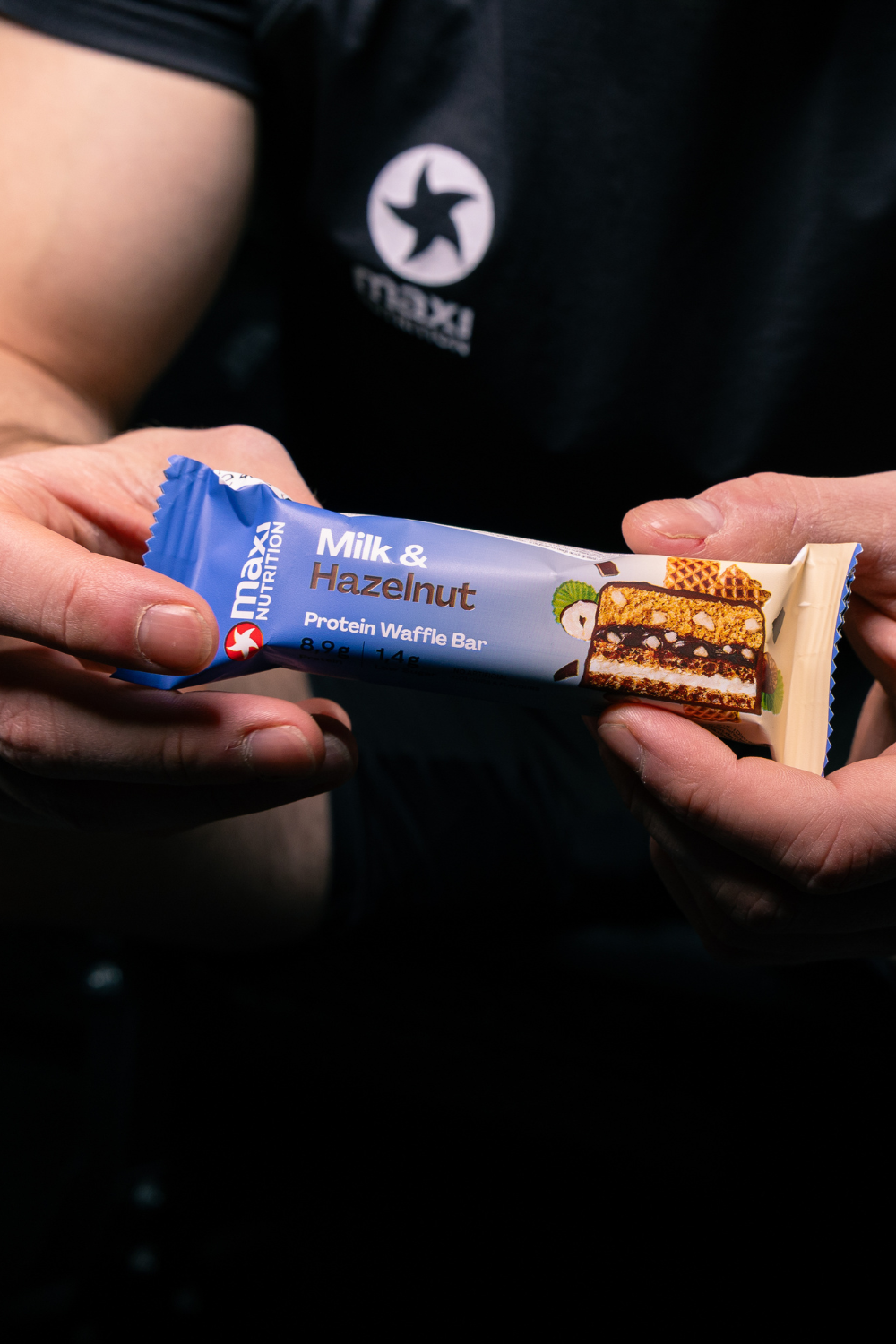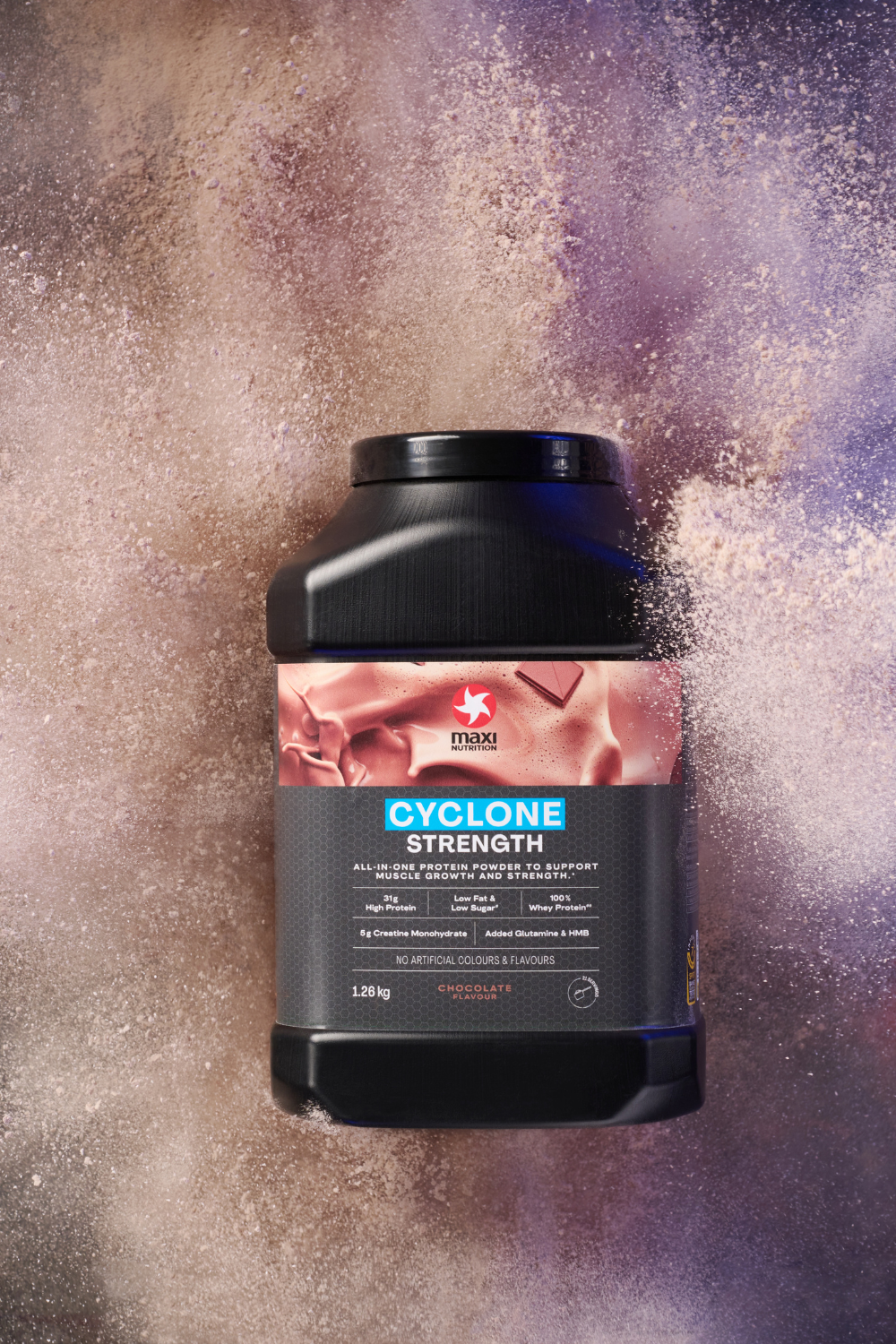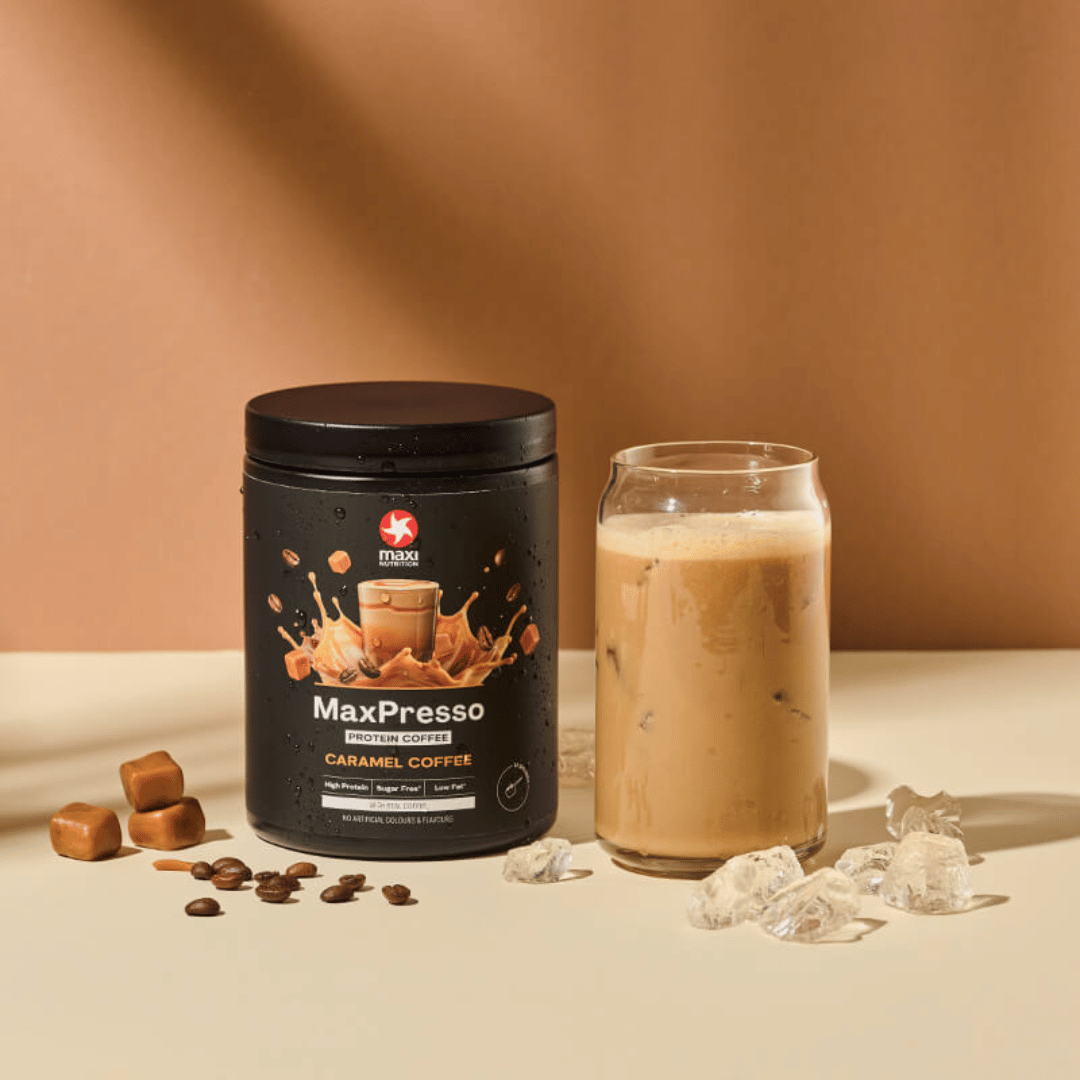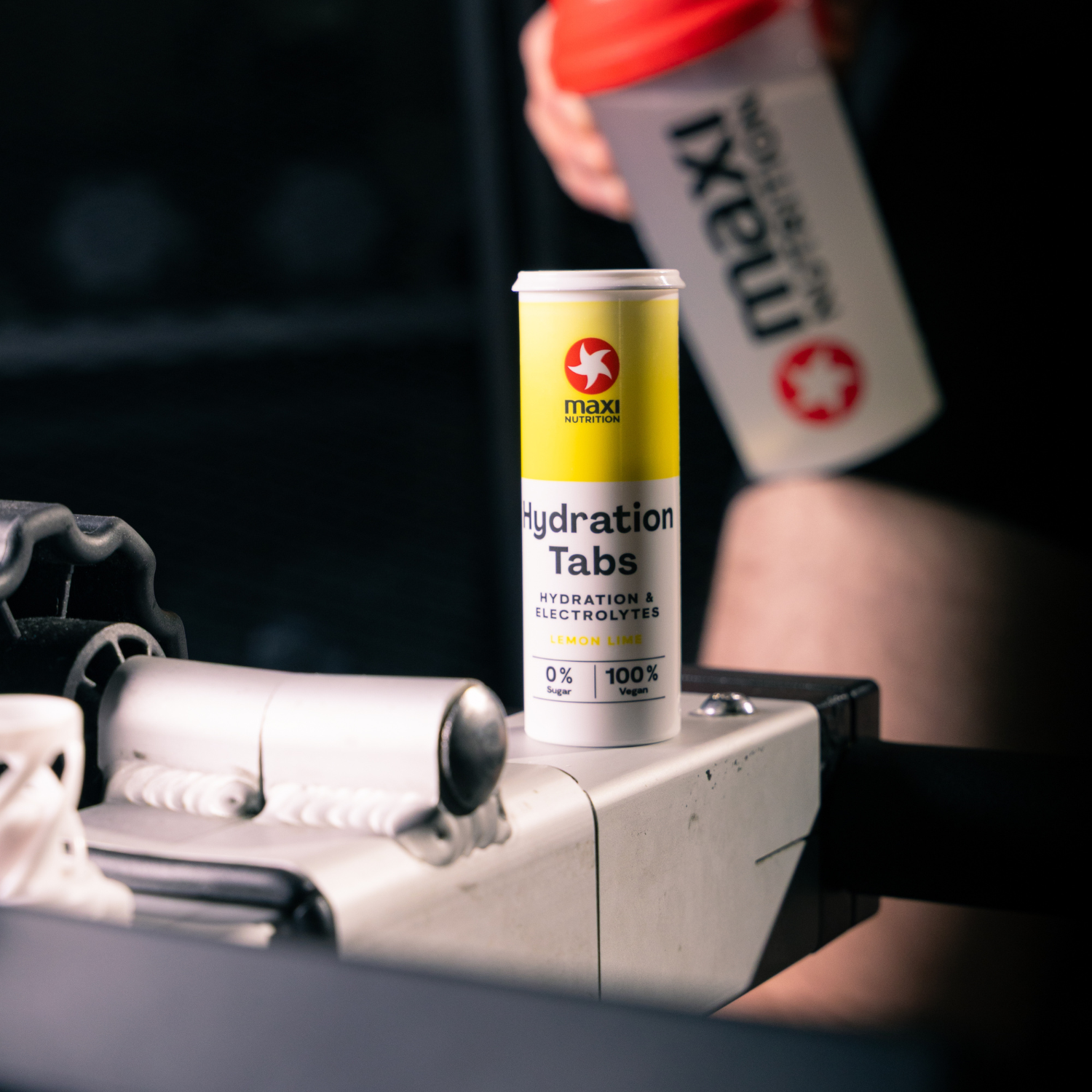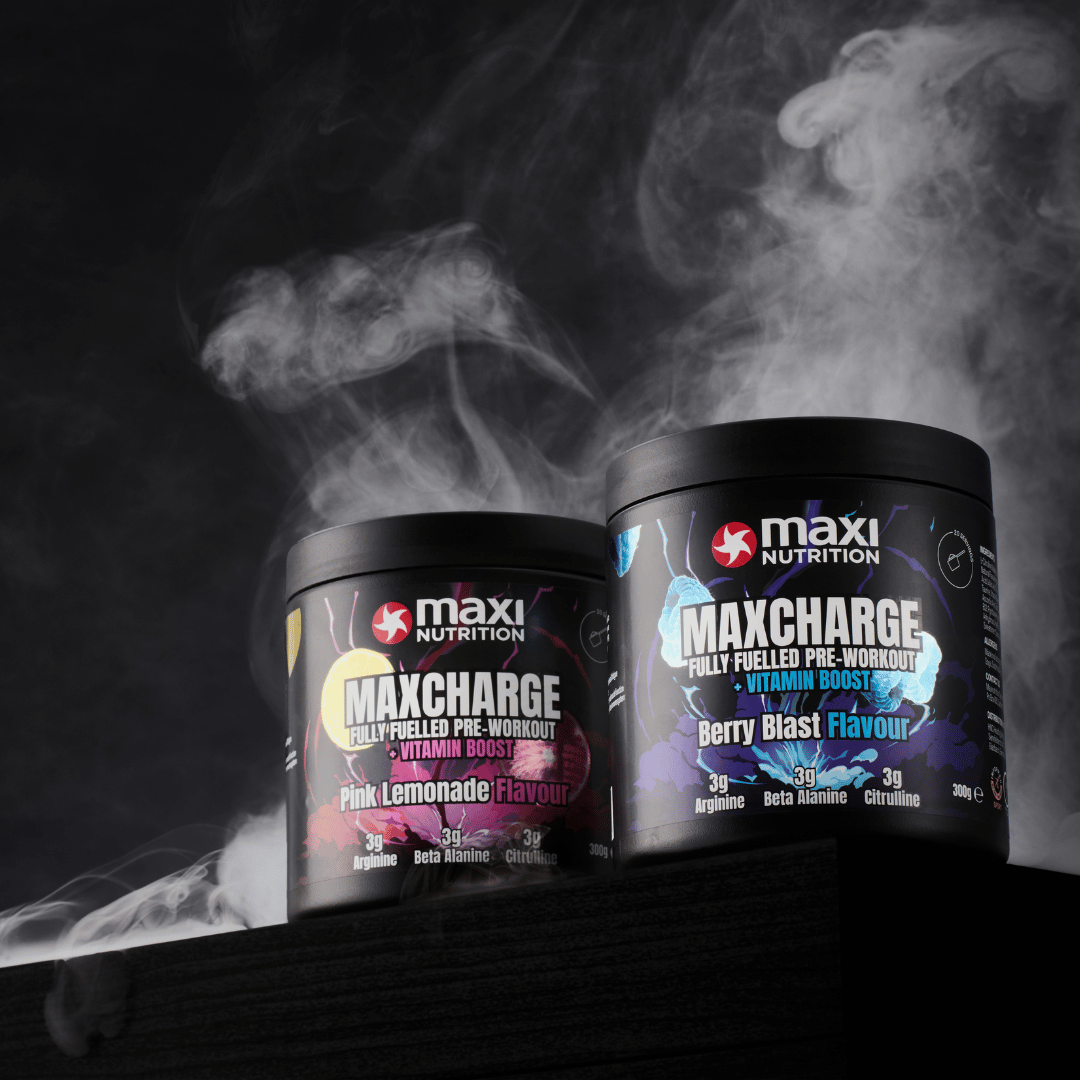Spring is finally here and the countdown to Summer is officially on, which can only mean one thing, it’s time to get back in the gym and prepare for the holidays.
Maximuscle’s first rule of fat club, is don’t do everything all at once; make changes over time, rather than trying to do it all in one go. Too much, too soon inevitably ends in failure. It’s about getting the basics right; building some solid nutritional foundations that will set you up for significant and lasting changes.
Building the foundations for a healthy diet
Any diet plan should reflect the body’s basic needs whilst also considering requirements to match the exercise demand, tweaking the intake depending upon your training regime and lifestyle. The typical healthy diet for weight loss should contain 50-60% carbohydrate, 20-30% protein and 15-25% fat. The ranges reflect the individual changes in nutrient metabolism, utilisation and genetics. For example, when you look deeper into your diet, you may find that the problem stems from over eating on one or more nutrients, over others – this could be your downfall. Let’s look at each of the macronutrients in more detail.
Carbohydrate
Carbohydrate is the body’s fuel of choice, providing crucial support for exercise intensity and replenishment, so don’t be fooled into cutting this important macronutrient out of your diet. Carbohydrate foods are grouped according to the glycaemic index (GI), which classifies carbohydrate depending upon effect on the blood sugar (glucose) levels on a scale of 0-100. GI has three categories: low (<55), medium (56-69) and high (>70) GI foods. In general, your diet should predominantly contain low GI carbohydrate foods. High GI foods should be reserved for times when energy is required quickly, such as during prolonged exercise.
Carbohydrate recommendations
| Daily | During Training | After Training (immediate) |
| 5-10g of carbohydrate per kg of body mass per day. This should correlate with the type of training and the duration. | Depending upon the intensity and duration. For any training over 90 minutes consume 30-60g per hour. | 1-1.2g of carbohydrate per kg of body mass (within 60 min after exercise). |
Protein
Protein is the key to muscle restoration, development and growth and a vital dietary nutrient. Proteins are made up from a collection of amino acids which have numerous roles within the body. From a human metabolism perspective, there are 20 amino acids, 9 which are demand essential – supplied from the diet, and 11 which are non-essential – made by the body. These amino acids are combined in a multitude of structures. Foods that contain all of the essential amino acids are termed ‘complete proteins’ – such as, foods from animal sources. For those foods that are missing one or more of the essential amino acids, these are termed as incomplete proteins. Fortunately, these types of foods can be combined to create complete sources. For example, combining grains with legumes.
Protein should be split into 0.25-0.4g per kg of body mass per feed (or approximately 20-30g feeds) and consumed throughout the day (every 3-4 hours). To maximise the anabolic response from exercise (resistance) consume 20-30g immediate following training.
Protein recommendations
| Daily | After Training (immediate) |
| 1.2-2.0g per kg of body mass | 20-30g (within 60 min after exercise) |
Fat
In modern society it is common knowledge that high fat foods should be limited in the diet. Not all fats, however, are bad and in fact, some are essential. For example, good fats such as omega 3s found in fish oils and dark green leafy veg, provide the essential fatty acids and the fat soluble vitamins – A, D, E and K.
Fat recommendations
| Daily | Saturated fat |
| 0.6-1.0 per kg of body mass | <10% |
Fibre
Fibre is something that is often overlooked, but in truth is as important as the other three traditionally recognised macronutrients. Dietary fibre rich foods are either water-soluble, which have been shown to lower cholesterol and balance blood sugar levels, such as oat, legumes and berries; or water-insoluble fibre, which helps to promote bowel regularity, such as bran, nuts and seeds. With regards to daily consumption, aim for a 3:1 ratio of insoluble to soluble fibre - 25-35g of total fibre per day. Try and pick foods that have a 5 to 1 ratio of carbohydrate to fibre content.
You are what you eat! Something to think about, but in truth when it comes to food we are often caught between the necessity and the desired. It’s the obvious boring answer which is the mantra we should live by; eating a healthy balanced diet and avoiding those unhealthy, often desirable choices, will put a spring in your step, and a step closer to your summer goal.
]]>

